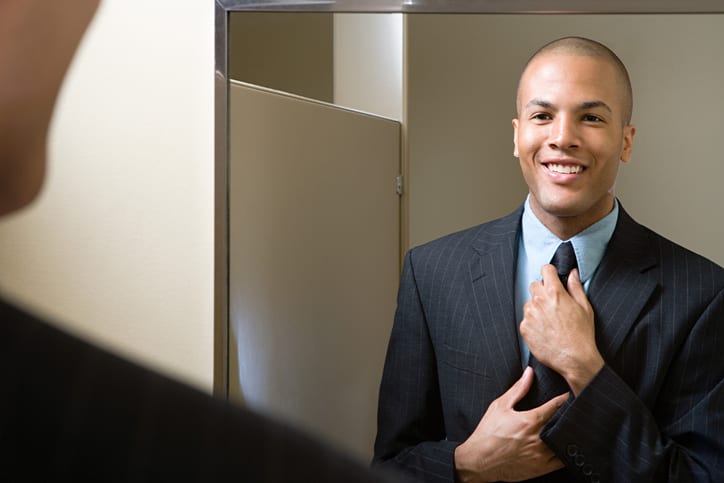Being called back for a second interview can stir up all kinds of thoughts and emotions: delight at making it to the next round, nervousness over the competition increasing, and a sense of determination to truly prove yourself. However you’re feeling about the news, one thing’s for sure: they’ve seen potential in you and your skills. Considering how many people apply for jobs, you’ve done well to make it to this stage.
Although you’re in contention for the job, it’s important not to take your foot off the gas. The second interview is where you need to emphasise your enthusiasm and the ways in which you can add value to the company. Daunting though it may seem, we’ve come up with some second interview tips and advice to help you stand out from your fellow candidates.
Quick navigation:
- What to expect from a second interview
- Preparing for a second interview
- Tips to succeed at your second interview
What to expect from a second interview
The second round of interviewing is where the vetting process gets more serious. You should expect more in-depth discussion about your place within the role and the company itself. With introductions out of the way as part of the first interview, you’ll now have to strengthen the foundations you built by demonstrating your experience, skills, and knowledge about the business and any problems that they’re facing.
Think about what that might entail. Are they hiring to speed up processes, add specific skills, or increase output? Whatever it is, you’ll need to demonstrate how you’ll add value to their company in this regard.
• In your email invite to the second interview, be sure to check for any information about what it will involve, such as:
• Whether you have to do any tests or exercises
• Whether it will be a competency or strength-based interview
• Who will be interviewing you; second stage interviews are often conducted by more senior staff
Any indications of the topics that will be covered
Preparing for a second interview
In deepening your understanding of the job and how you’ll succeed in the role, it’s a good idea to do the following steps before your second interview:
Review notes from your previous interviews
Take time to read back over your notes and preparation from your first interviews to remind yourself about how it went. Identify your best answers and which you feel might have let you down. Perhaps there was some experiences or successes that you forgot to mention that may be worth bringing up next time?
You should also take another look at the job posting. Refresh your knowledge about the position and take note of what the employer expects from the right candidate.
Prepare answers to potential questions
It’s often difficult to know what questions will be asked in a second interview. It may be the case that you’ll cover the same topics as before, just in greater detail, or they may want to discuss different things entirely. If the first interview looked at your existing skills, then the second may focus more on how you’d approach specific challenges in the role.
When the questions are more behaviour based, the interviewer is looking to learn how you behave in real-world situations; how to understand the value you added to such situations and how you interpret things like pressure and challenges in the workplace. There aren’t necessarily any wrong answers, they just want to know more about the real you.
In answering these questions, you can use the STAR method to structure your response:
• Situation: Contextualise the story or situation.
• Task: What was your role in this situation?
• Action: What did you do?
• Result: What did your actions lead to?
Research your interviewers
Depending on the company, you may be interviewed by the hiring manager, members from the team you’ll be joining, or upper management staff such as executives or founders. If you haven’t received the agenda from the recruiter with your interviewers’ names, be sure to ask them for it. This allows you to learn more about your interviewers, which is a great way to show your investment in the role and interest in them as people.
Prepare questions for your interviewers
Your interviewers will ask if you have any questions for them. In your preparation, take time to come up with some questions that show you’ve thought about the position and the company.
While we’ve already written about this topic here, it’s important to make your questions more specific to the job as this shows you’ve continued doing your research between both interviews. For instance, you could ask about current projects, what you might be working on if you’re successful, or, if there’s a news story relevant to the industry, you might want to inquire about the company’s response to it.
Or, you may want to ask about the department you’d be joining, which can lead to touching on things such as management style, team dynamic and working culture. Although it’s probably been brought up at some point, now would also be the time to ask about salary and starting date if they haven’t already been mentioned.
Tips to succeed at your second interview
Be enthusiastic and energetic
Second stage interviews tend to be longer than the first. You may have to contend with a series of meetings or interviews with individuals and small groups, which can extend the duration of the day somewhat. It may be tiring, but it’s important to remain enthused throughout as you’ll be evaluated on your motivation and personality over the course of the day. A positive, energetic impression is always important to keep in mind.
Be prepared to answer variations of the same questions
In addition to the new answers you’ve prepared, have your previous answers stored away in your head too. There’s a chance your first interviewer didn’t pass on some information to their colleagues, so be ready to say why you’re interested in the role once again. Remember to relate your knowledge, skills and personal qualities to these responses too.
Remember you’re always being evaluated
Don’t underestimate the importance of questions that appear less-than-probing initially. Anyone you meet might be asked for their impressions later on; even if you’re meeting them informally, it’s essential that you maintain a professional demeanour and don’t let your guard down.
Be aware of group activities
Depending on the company, you may have group interviews or social receptions to attend to which require you to interact with other candidates. Your potential employers will use these situations to assess how you work in groups. Here, your leadership, ability to draw consensus from others, and your listening skills will be valued and assessed, along with any solutions and statements you offer up.
Don’t forget about body language
Confidence in your body language starts from the first handshake. In addition to your voice, which should be clear, bold and confident, it’s important to keep your non-verbal cues in mind as well. Keep your feet flat on the ground or crossed at the ankles, maintain good posture and exude professionalism in your appearance.For more information on the importance of body language in interviews, check out our article on the topic here.
Click here for the latest news and features from SEFE Marketing & Trading or visit our homepage to find out about our latest career opportunities.
The views, opinions and positions expressed within this article are those of our third-party content providers alone and do not represent those of SEFE Marketing & Trading. The accuracy, completeness and validity of any statements made within this article are not guaranteed. SEFE Marketing & Trading accepts no liability for any errors, omissions or representations.














